
Sign in to your Collider account
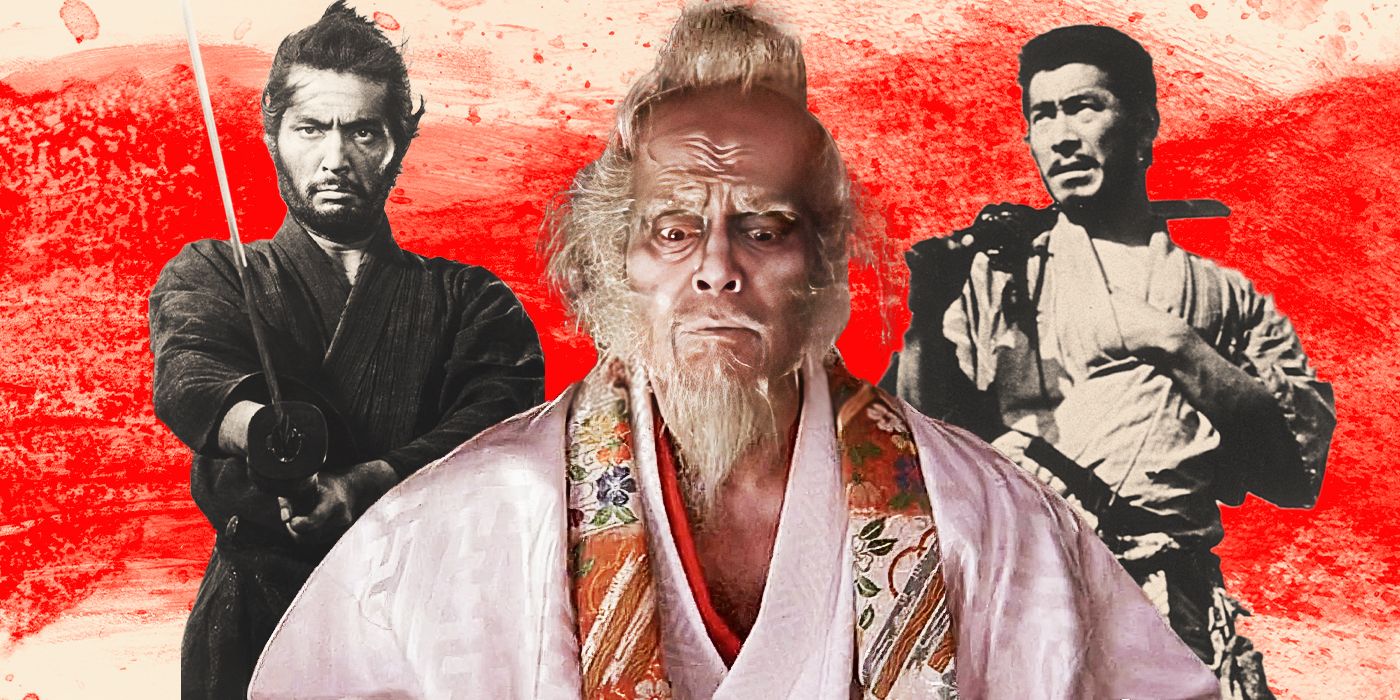 Image by Federico Napoli
Image by Federico Napoli
If you watch enough Japanese cinema, especially the classics, you're probably going to come across a samurai film or two before long. If a movie has samurai characters, it obviously qualifies, as do martial arts movies made in Japan that have a focus on sword-to-sword combat. Additionally, if a movie is more of a historical drama set in samurai times (and doesn’t have much action), it can still qualify.
What follows are not just the best of the best, but the samurai movies that feel the closest to perfect (and a handful genuinely are impossible to fault). There’s also going to be a focus here on Japanese movies rather than any American/English-language films that feature samurai in some capacity, so, apologies to the likes of Kill Bill and The Last Samurai.
10 '13 Assassins' (2010)
Directed by Takashi Miike
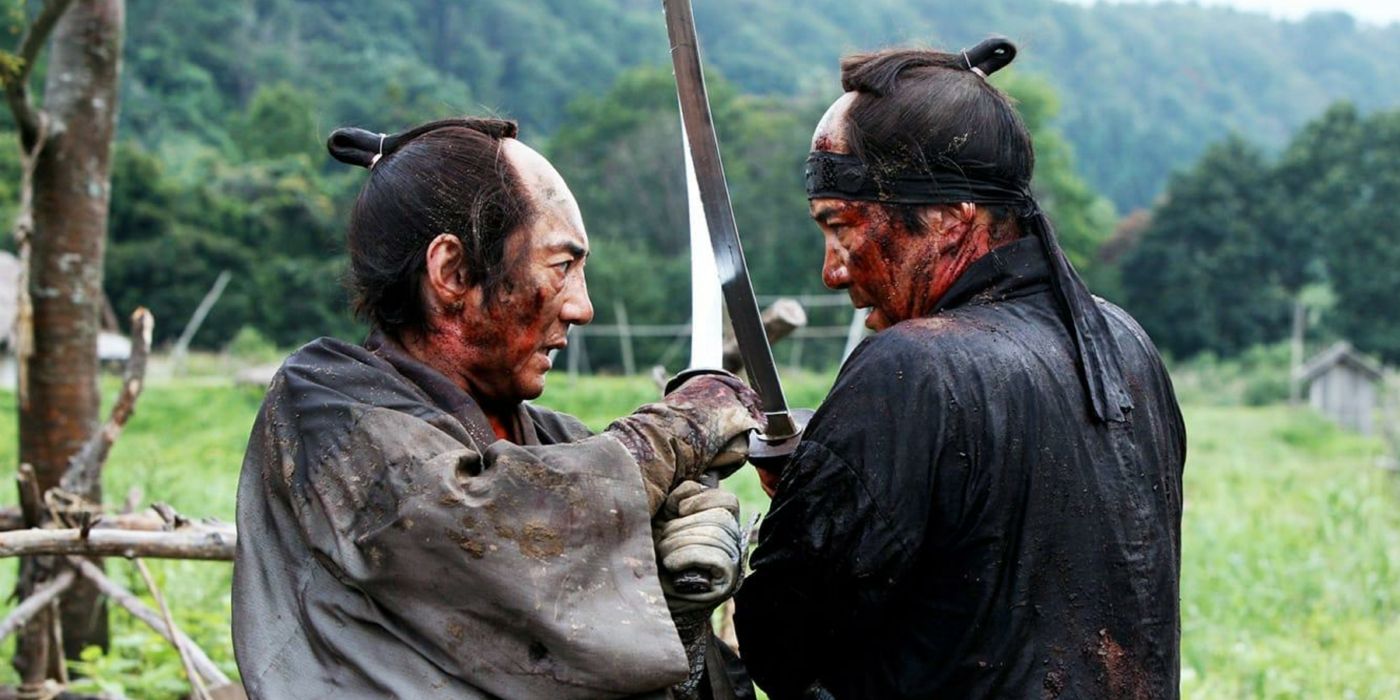 Image via Toho
Image via Toho
There’s a wonderfully simple premise at the heart of 13 Assassins, and one that leads to some eventually great and immensely exciting action. Said action occurs in the final act, as part of a large battle sequence, but before then, 13 Assassins is more of a drama; one that involves great injustice committed by a corrupt lord who holds a dangerous amount of power.
So, a group of 13 assassins (shock, horror) are brought together to enact a plan to bring this villain down, and all the beats you'd expect such a film to hit along the way are hit exceedingly well. 13 Assassins mixes stylized action with gritty authenticity and grim drama incredibly well, making it a balanced, involving, emotional, and very engrossing watch.
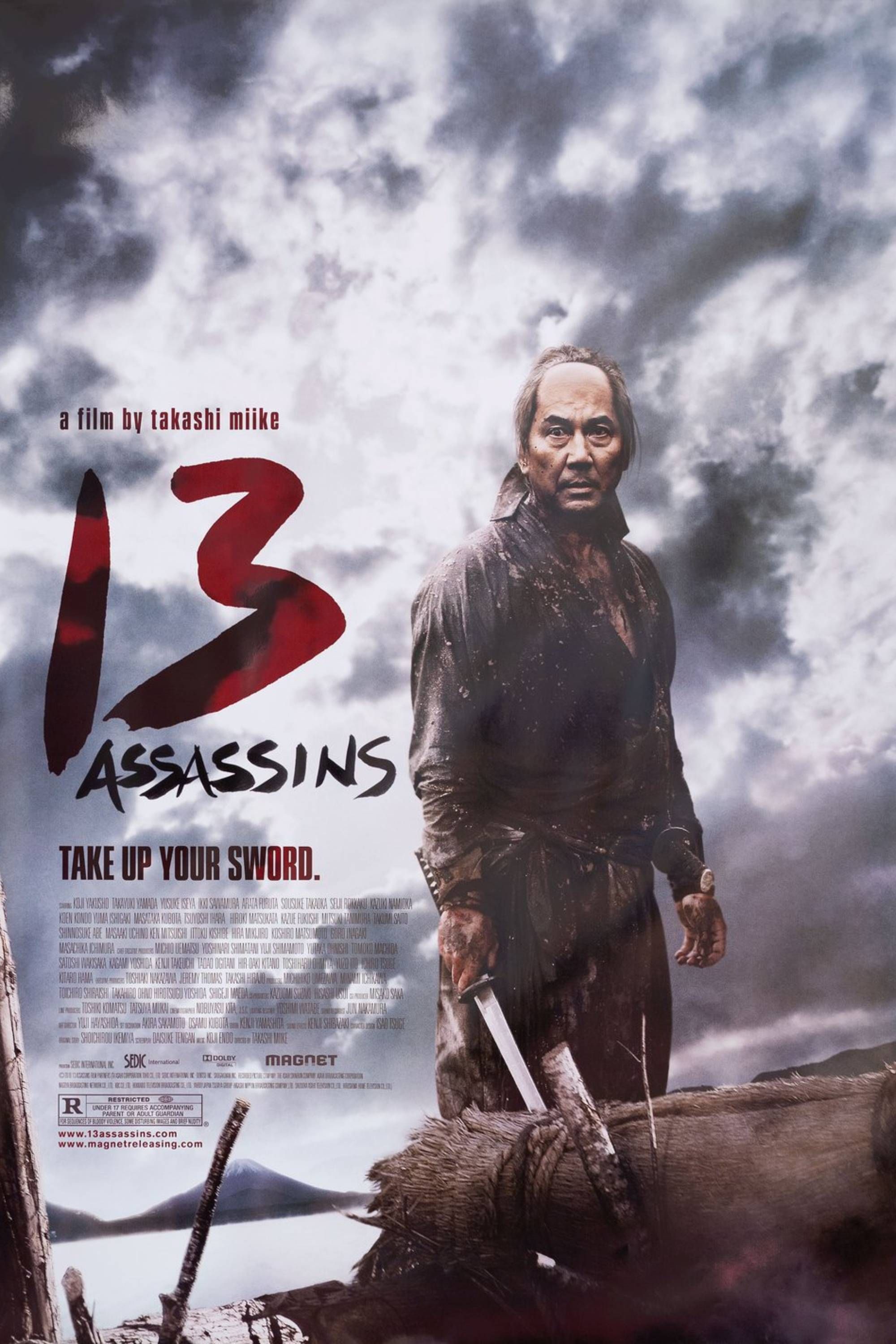
13 Assassins
Release Date September 9, 2010
Runtime 141 Minutes
9 'Zatoichi Goes to the Fire Festival' (1970)
Directed by Kenji Misumi
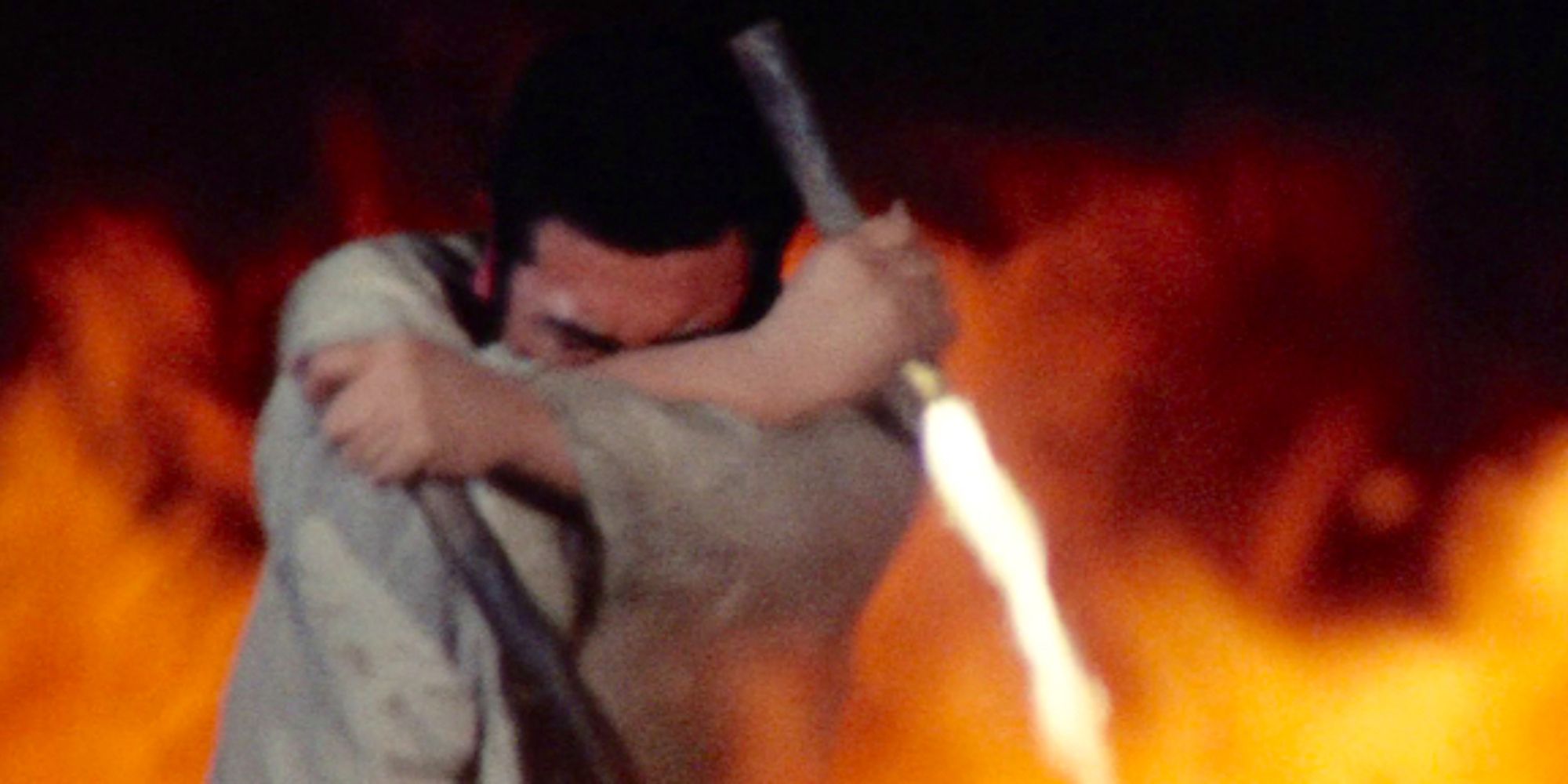 Image via Dainichi Eihai
Image via Dainichi Eihai
Some might say there are too many Zatoichi movies, but they're probably the kinds of people who haven’t watched all the movies in the Zatoichi series (bless them, for they do not know what they are missing). Actually getting through the series makes one thing surprisingly clear: just about all these movies about a heroic, rebellious, and entirely blind lone swordsman range from good to great quality-wise.
Picking one as the best is hard, but it might well be the 21st film in the series: Zatoichi Goes to the Fire Festival. It has a good deal of action, some strong side characters, and particularly memorable villains for the central hero to go up against, too. It’s everything you could want out of a samurai movie focused on delivering action/adventure, and it’s still a blast to watch 50+ years after its initial release.
8 'Sanjuro' (1962)
Directed by Akira Kurosawa
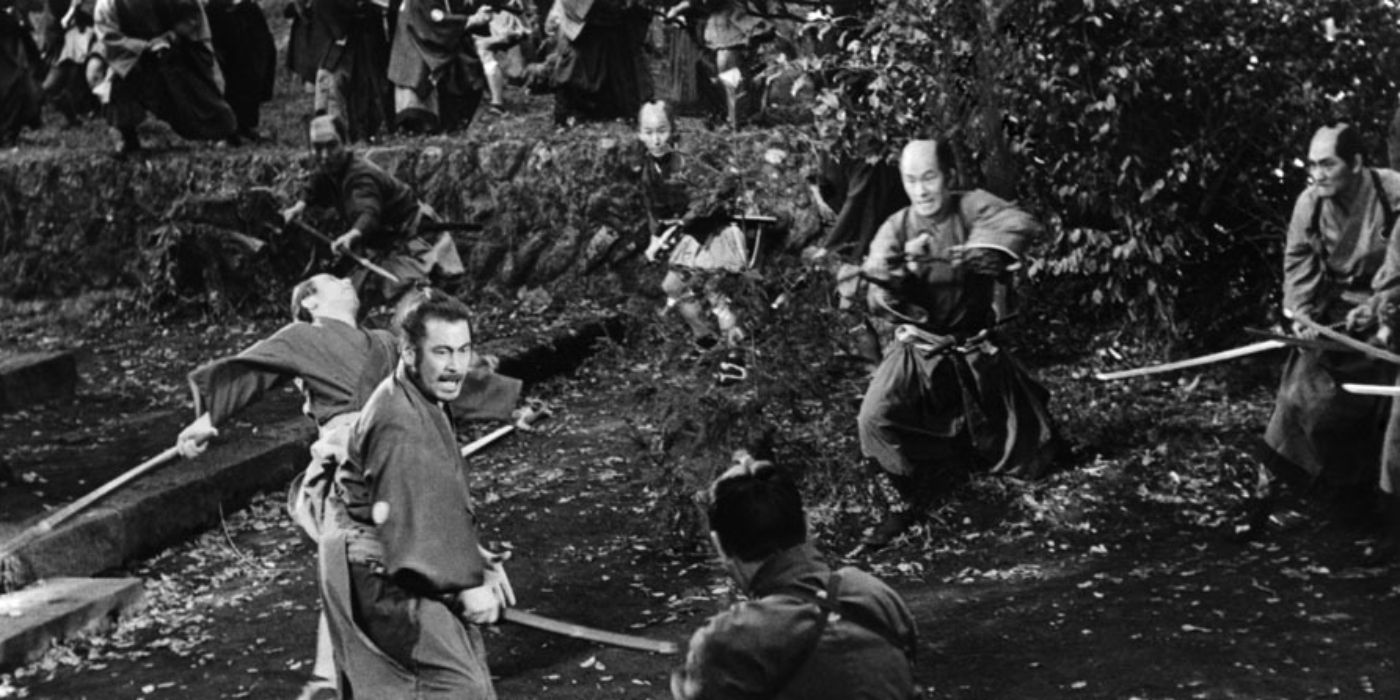 Image via Toho
Image via Toho
A film that’s probably underrated by Akira Kurosawa standards, Sanjuro is sort of a follow-up to Yojimbo, but not entirely. Toshiro Mifune is in both, and is probably the same character, but the films are as linked narratively as the Sergio Leone Westerns Clint Eastwood starred in (and, funnily enough, A Fistful of Dollars – the pair’s first – was a little too similar to Kurosawa’s Yojimbo).
As for Sanjuro, though, the plot is a bit convoluted, but things gradually take shape and unfold in interesting ways, with a surprising amount of humor and action to be found here as well, for good measure. It’s also just a delight to see Mifune charm his way through various difficult situations and, whenever that fails, break out his sword and more bluntly chop his way through difficult situations. It really is the best of both worlds.
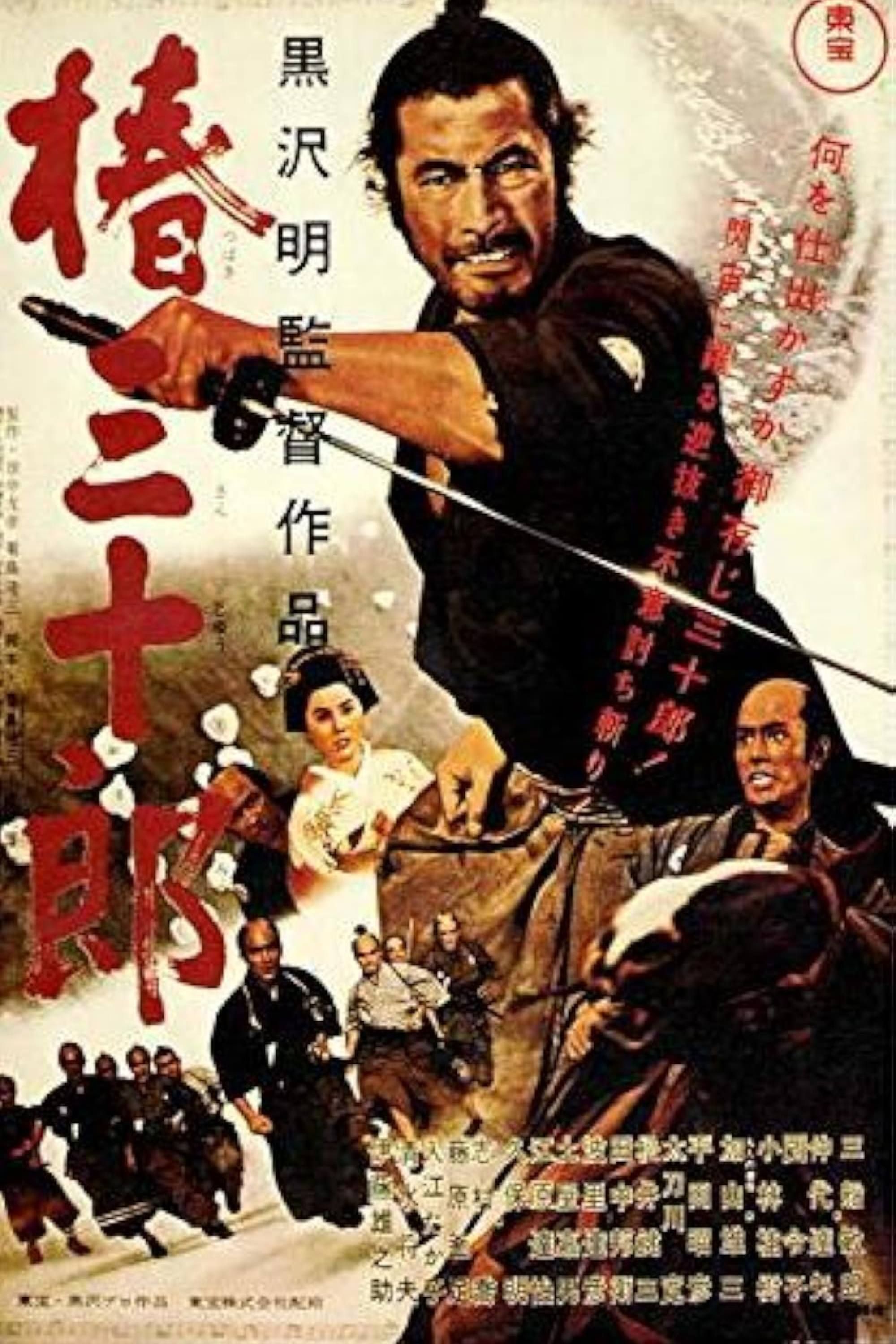
Sanjuro
Release Date January 1, 1962
Director Akira Kurosawa
Writers Akira Kurosawa, Shûgorô Yamamoto, Hideo Oguni, Ryûzô Kikushima
7 'The Twilight Samurai' (2002)
Directed by Yoji Yamada
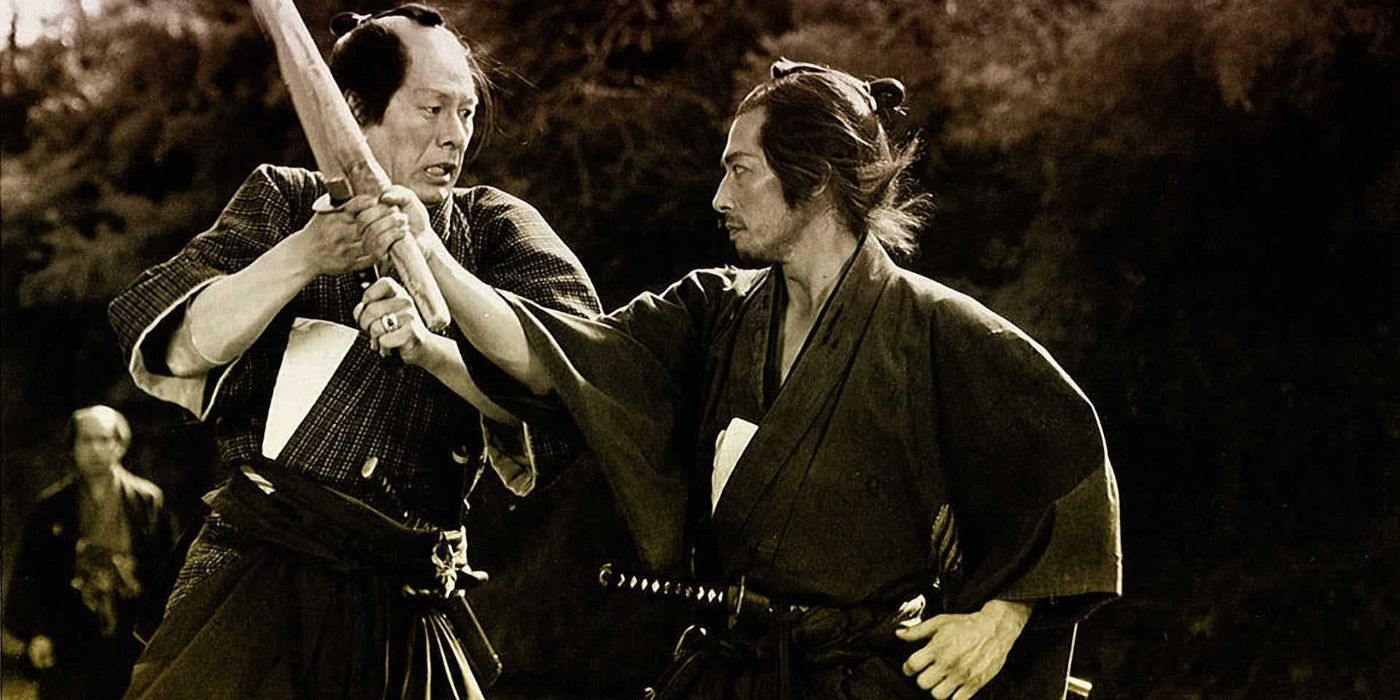 Image via Shochiku
Image via Shochiku
Having nothing to do with that other Twilight series (but vampires + samurai could be kind of cool, admittedly), The Twilight Samurai is one of those samurai movies that’s more of a drama than an action film. When there is combat here, it’s genuinely surprising, because most of the film’s about a struggling low-ranking samurai trying to provide for his family while maintaining the code he’s supposed to live by.
Certain things challenge him morally, as does the re-emergence of someone he once loved, and the film is overall honest about the ways in which an “ordinary” samurai might well have lived his life. This all makes The Twilight Samurai a period drama, and a pretty great one, turning what might sound mundane into something that ends up being quietly engrossing and, ultimately, rather emotional.
6 'Lone Wolf and Cub: Baby Cart at the River Styx' (1972)
Directed by Kenji Misumi
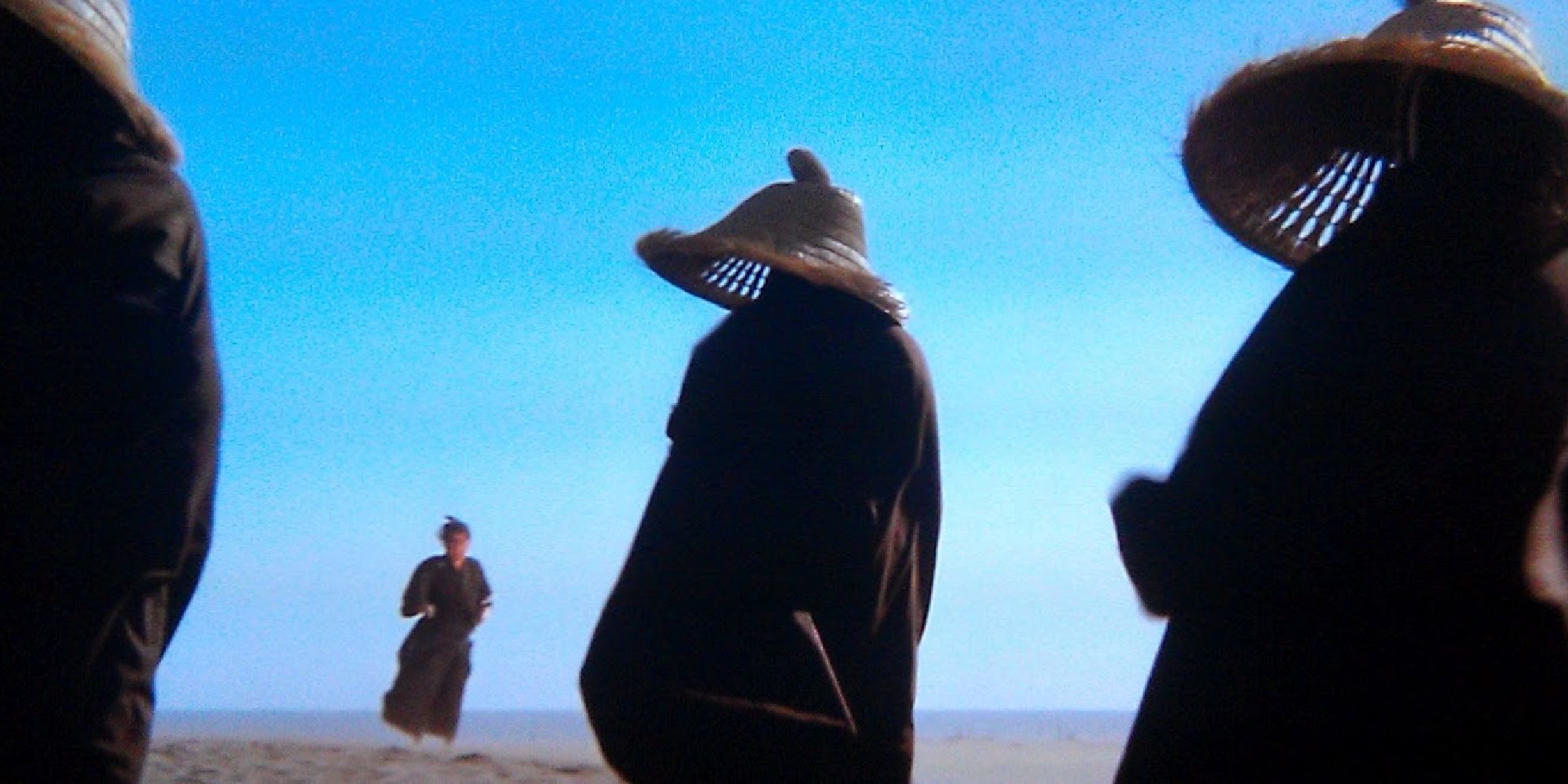 Image via Toho
Image via Toho
Though there aren’t as many Lone Wolf and Cub movies as there are entries in the Zatoichi series, it’s still a pretty beefy one, with six main ones all released between 1972 and 1974. Also, all of them are consistently awesome, exciting, and bloody, with the second of the six – Lone Wolf and Cub: Baby Cart at the River Styx – probably being the single best one overall.
The whole series involves a quest for revenge carried out by a lone warrior, with his young son accompanying him, with certain movies in the series standing alone and having him interact with different characters; sometimes helping them, and sometimes fighting them. Baby Cart at the River Styx has everything that works about the series distilled into one film, making both it and the first movie of the series (Lone Wolf and Cub: Sword of Vengeance) easy to recommend for fans of samurai films who don’t mind such films getting very violent.
5 'The Sword of Doom' (1966)
Directed by Kihachi Okamoto
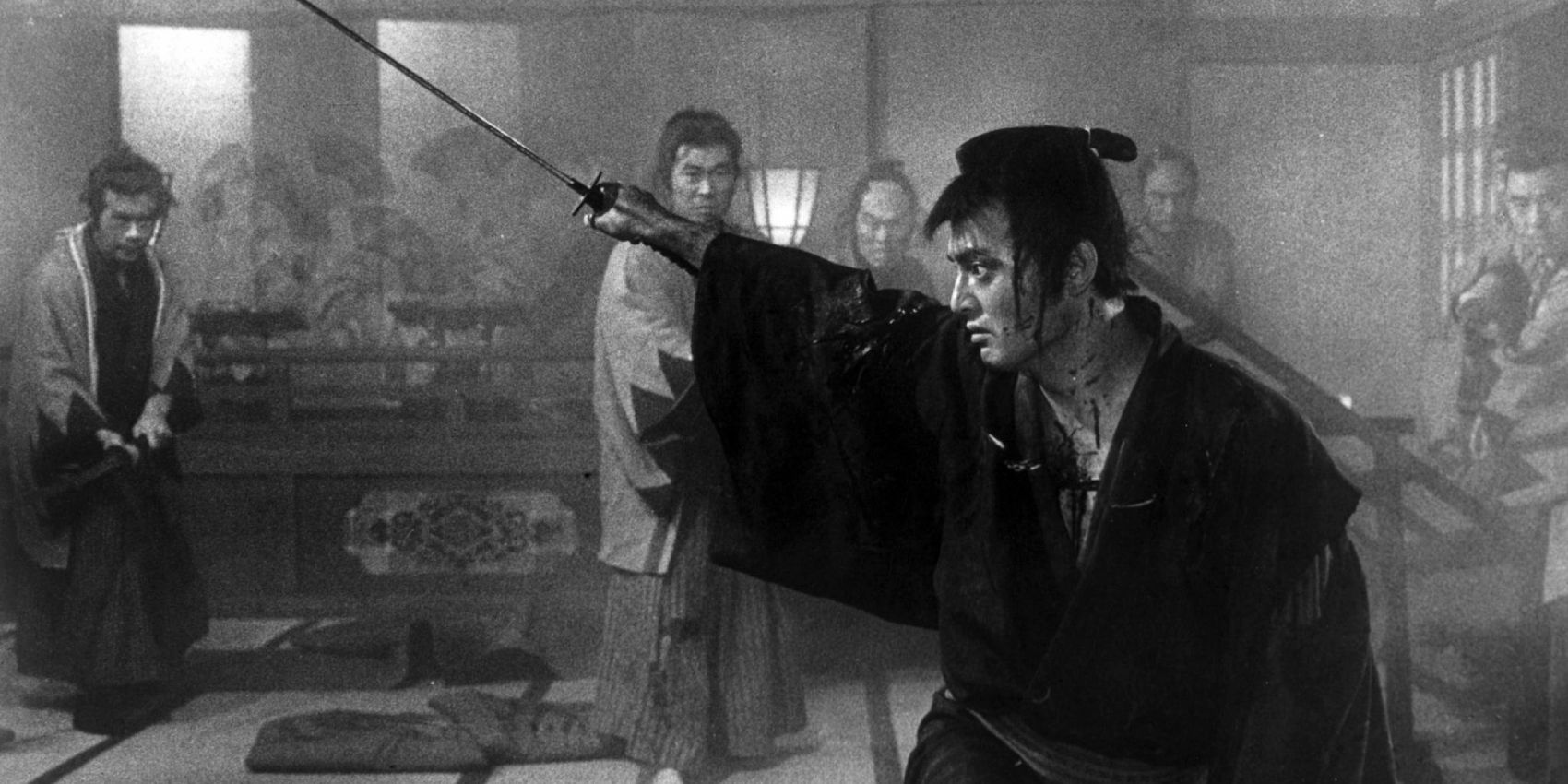 Image via Toho
Image via Toho
The Sword of Doom is uncompromisingly nihilistic, but the word “Doom” is in the title, so you get a pretty good warning. The character at the center of this film has the skills of a samurai, but nothing approaching the kind of moral code they were supposed to have, having little regard for human life and seemingly getting more unstable psychologically the more damage he does to those around him.
Everything builds to an incredible climactic sword fight; a scene that’s so good, it’s kind of hard to remember everything else that happened in The Sword of Doom. But, upon some reflection, the rest of the movie is also awesome, being effectively dark and even kind of nightmarish (if you squint hard enough, you could almost call it the samurai film equivalent of a slasher movie).
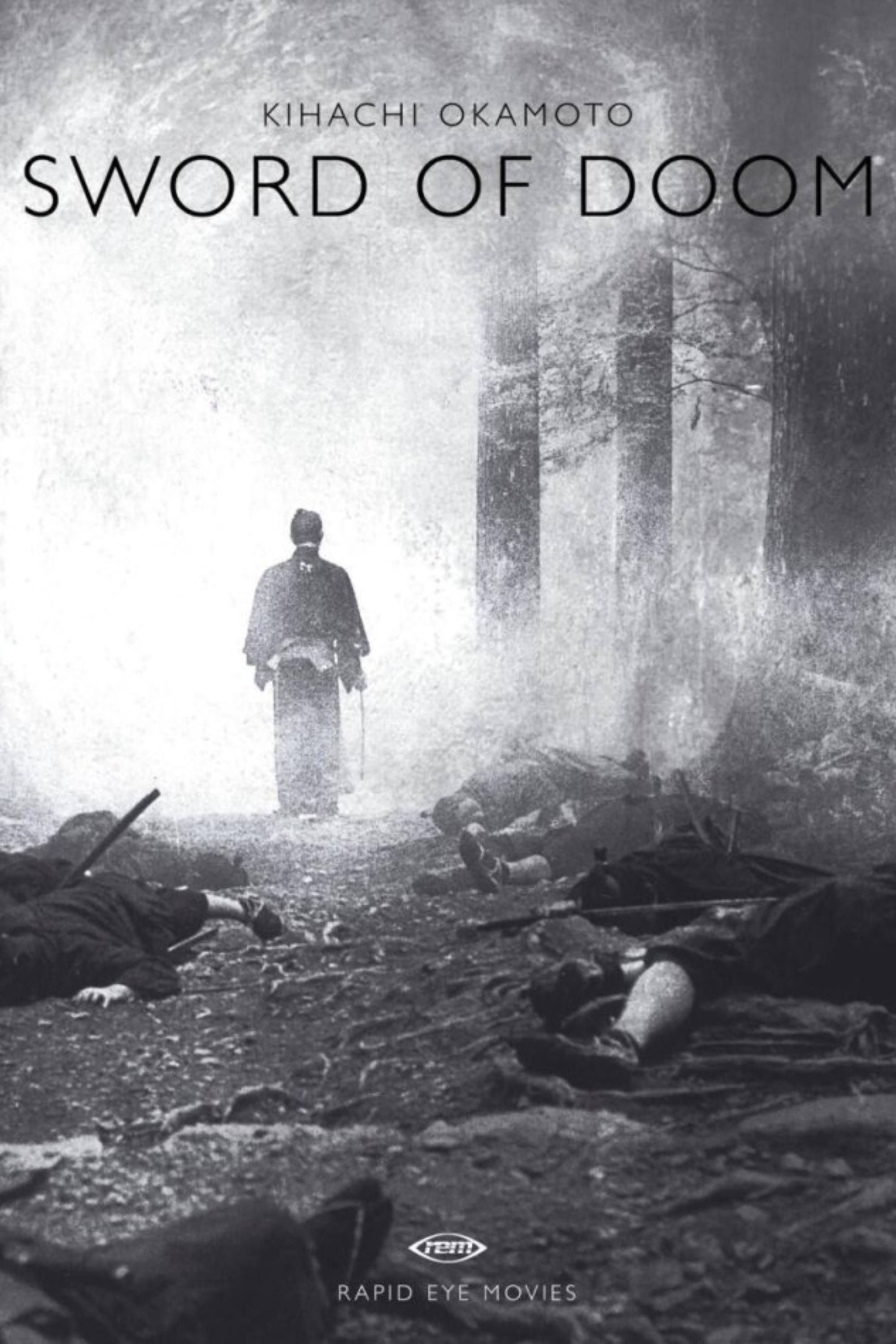
The Sword of Doom
Release Date July 1, 1966
Runtime 120 Minutes
Director Kihachi Okamoto
4 'Yojimbo' (1961)
Directed by Akira Kurosawa
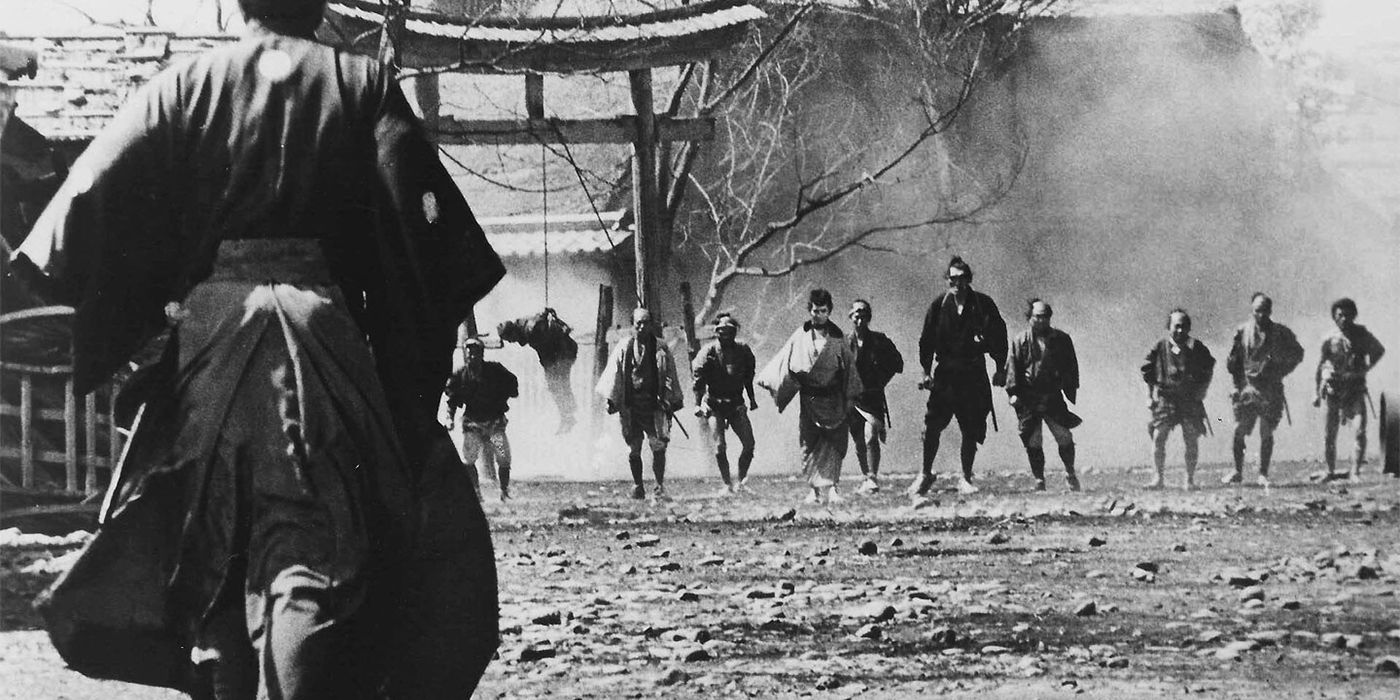 Image via Toho
Image via Toho
While Yojimbo doesn’t have quite as much action as the aforementioned Sanjuro, it does have the punchier premise, the (arguably) superior Toshiro Mifune performance, and might well be better overall. Still, anyone, regardless of how much you like Akira Kurosawa, ought to check out both, as they make an odd sort of duology, together showcasing just how great Kurosawa was when he made samurai films.
The premise of Yojimbo is straightforward and brilliant, as it follows one man trying to take down two gangs by pretending to join both, and then manipulating things so that they both end up eliminating the other side. It’s a continually tense film with just enough humor – and occasional bursts of action – to keep things always gripping, making it a great starting point for anyone new to classic samurai-centered cinema.
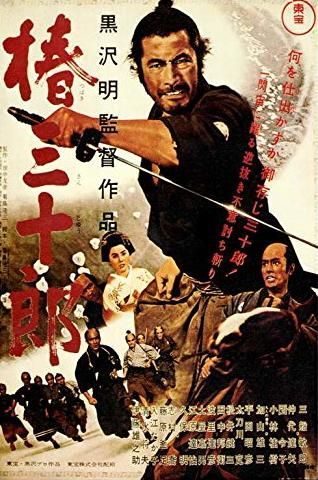
Yojimbo
Release Date April 25, 1961
Runtime 110 minutes
Director Akira Kurosawa
3 'Ran' (1985)
Directed by Akira Kurosawa
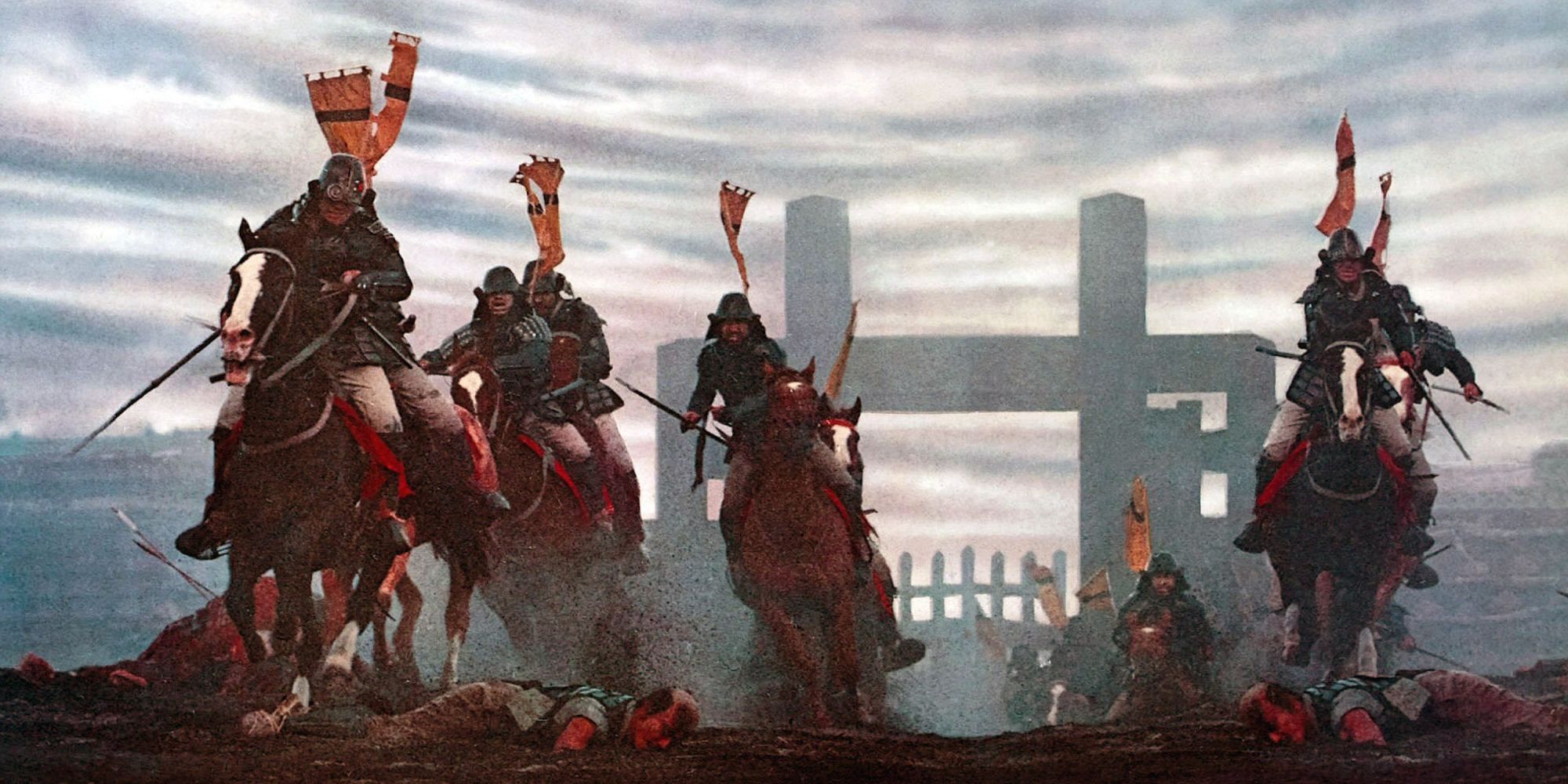 Image via Toho
Image via Toho
Yes, there have already been two Akira Kurosawa movies mentioned, but like it or not, there are going to be two more, including this one: Ran. This wasn’t the great filmmaker’s final film, but it was perhaps his most epic, and his final directorial effort that could be described as a samurai/historical drama movie, mostly thanks to it being set during the 16th century and having the appropriate combat during its war sequences.
Ran goes big and impresses on a visual front, also working thunderously well as a reinterpretation of Shakespeare’s King Lear. There are scenes in Ran that, once seen, will stick with you forever, and few films have ever used color quite as effectively as Kurosawa did here. Some of the previously mentioned samurai movies were close to perfect, but Ran – and the couple left to mention – are genuinely perfect.
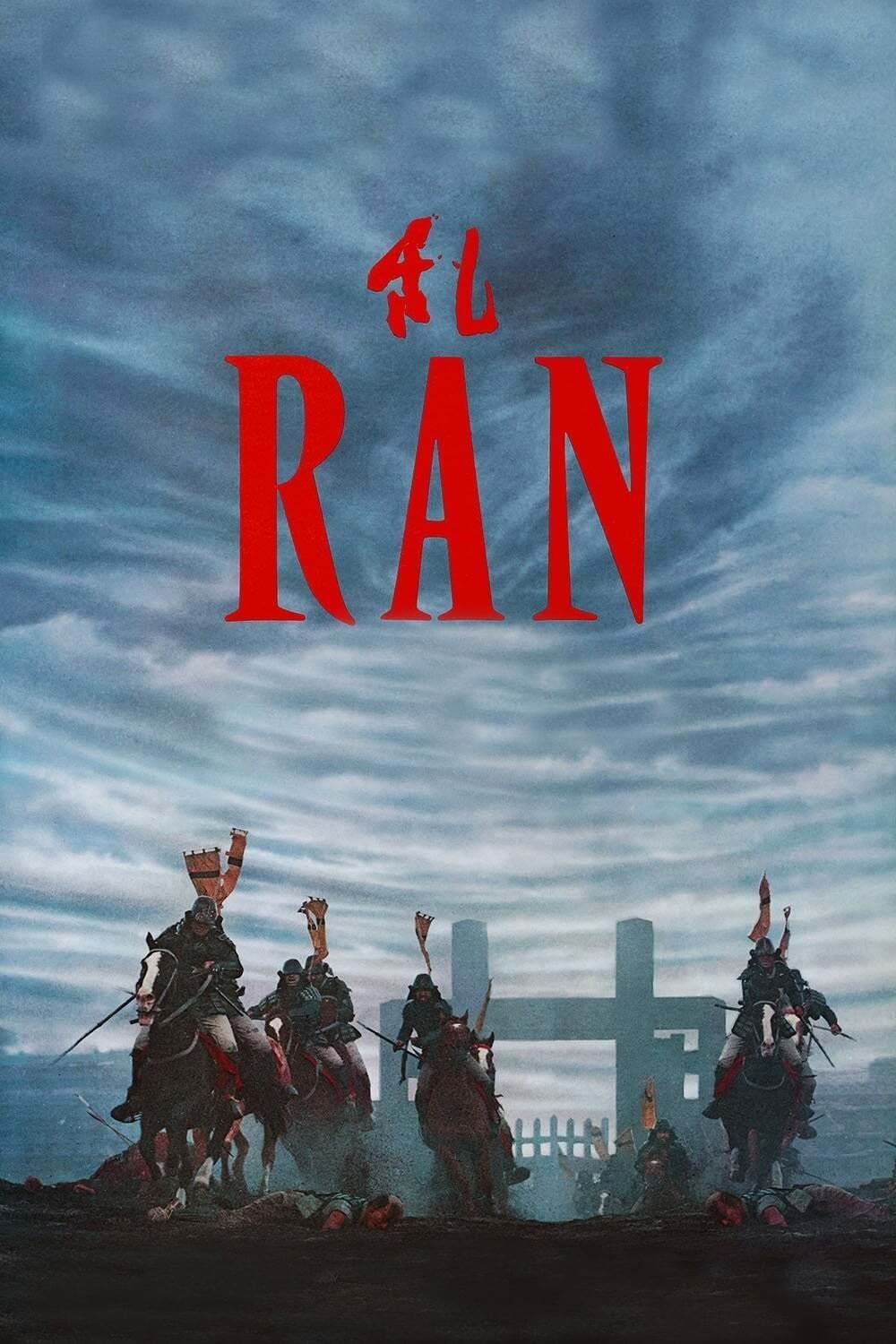
Ran
Release Date December 20, 1985
Runtime 160 Minutes
Director Akira Kurosawa
2 'Harakiri' (1962)
Directed by Masaki Kobayashi
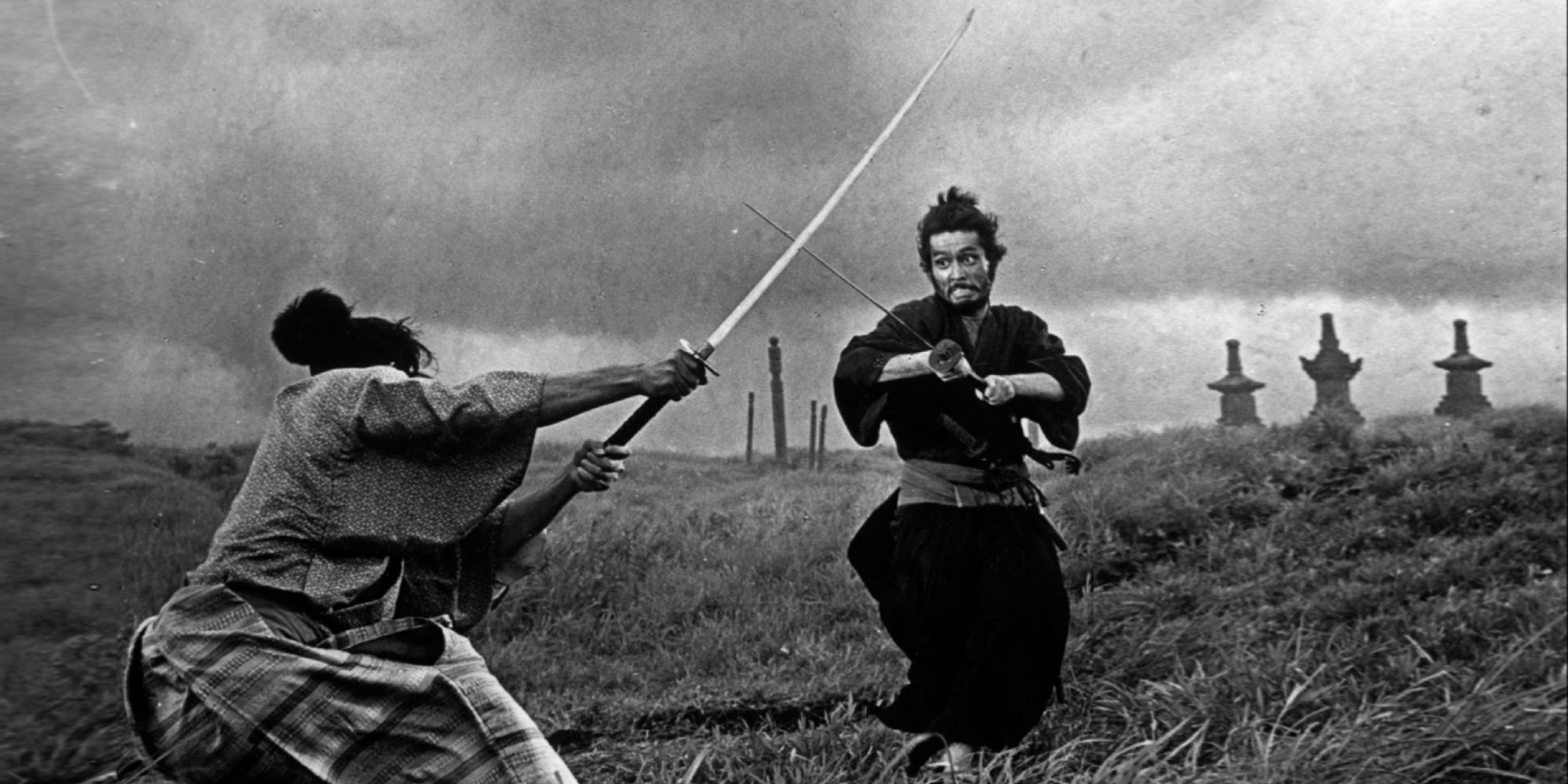 Image via Shochiku
Image via Shochiku
Harakiri is great enough to be called one of the best international films of all time, and can similarly be described as one of the darkest samurai movies ever made. It’s principally a film about revenge, but the reasons for that revenge get revealed very gradually, making Harakiri a slow-burn movie, sure, but never a boring one. There’s always an uneasy energy, from scene to scene.
Things explode in a more expected way near the climax, but even then, Harakiri retains the feeling of being a deconstruction of the samurai genre, and the samurai way of life, more broadly. It’s a despondent and oftentimes grim film, but those qualities are also what make it equal parts powerful and striking. It’s considered a great movie, however you want to define it, and it’s not hard to understand why.
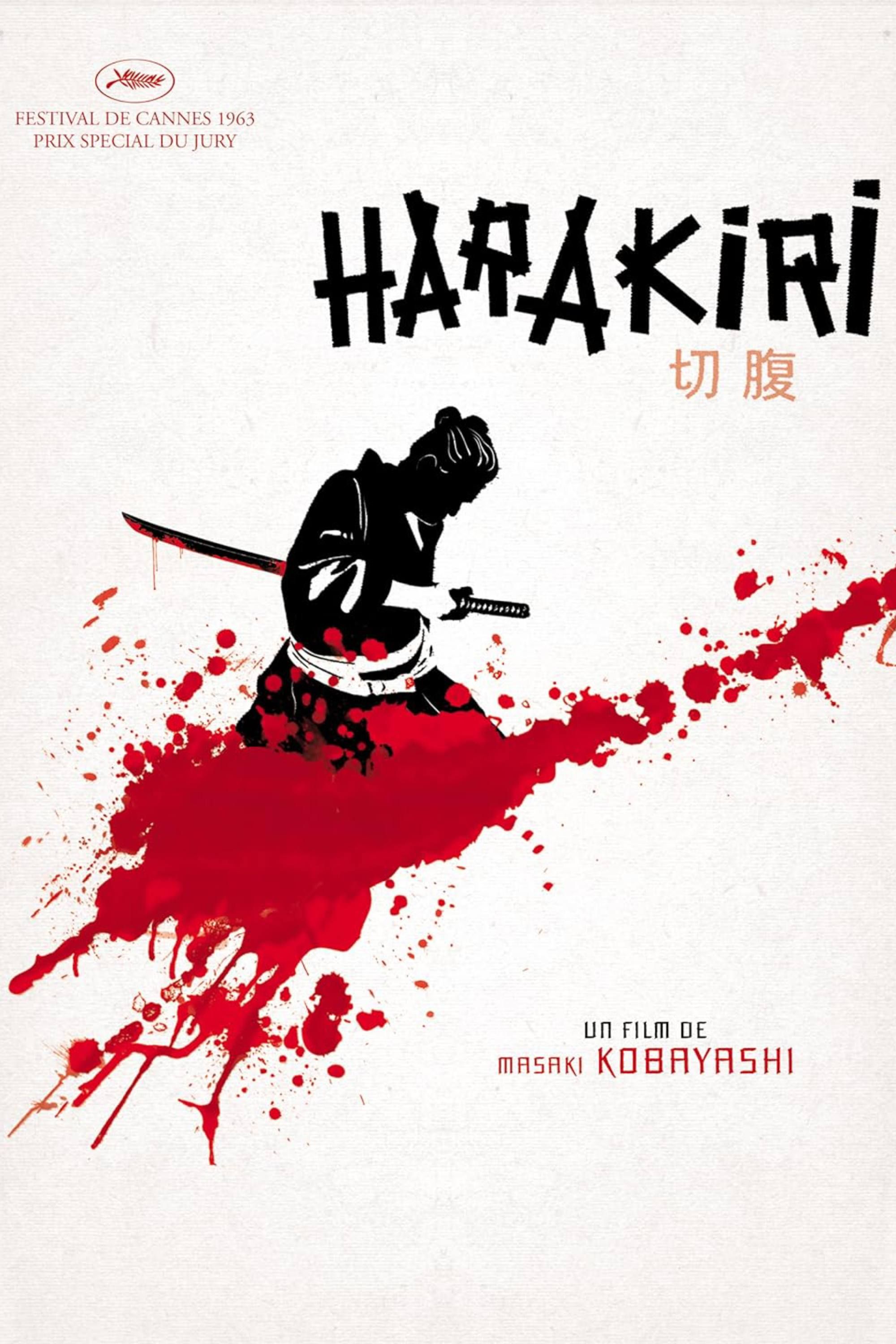
Harakiri
Release Date September 15, 1962
Runtime 133 Minutes
Director Masaki Kobayashi
1 'Seven Samurai' (1954)
Directed by Akira Kurosawa
Of course the best samurai movie is Seven Samurai. Could it ever be anything else? This was the action epic that basically wrote the book on how to craft an action epic, so calling it one of the most influential action movies of all time is quite the understatement. There’s a situation that’s desperate, a group of heroes are recruited, there are plans for a battle, and then the battle eventually plays out.
That’s what Seven Samurai is, on the surface, but it’s everything beneath the surface that makes it soar. All the characters are memorable, what needs to happen is clearly defined, the non-action stuff is engaging either dramatically or comedically, and then all the action-focused sequences really deliver. Seven Samurai delivers the goods – all the goods – across a runtime that exceeds three hours. It isn't just a great samurai movie, but it’s up there among the greatest films of all time, period.
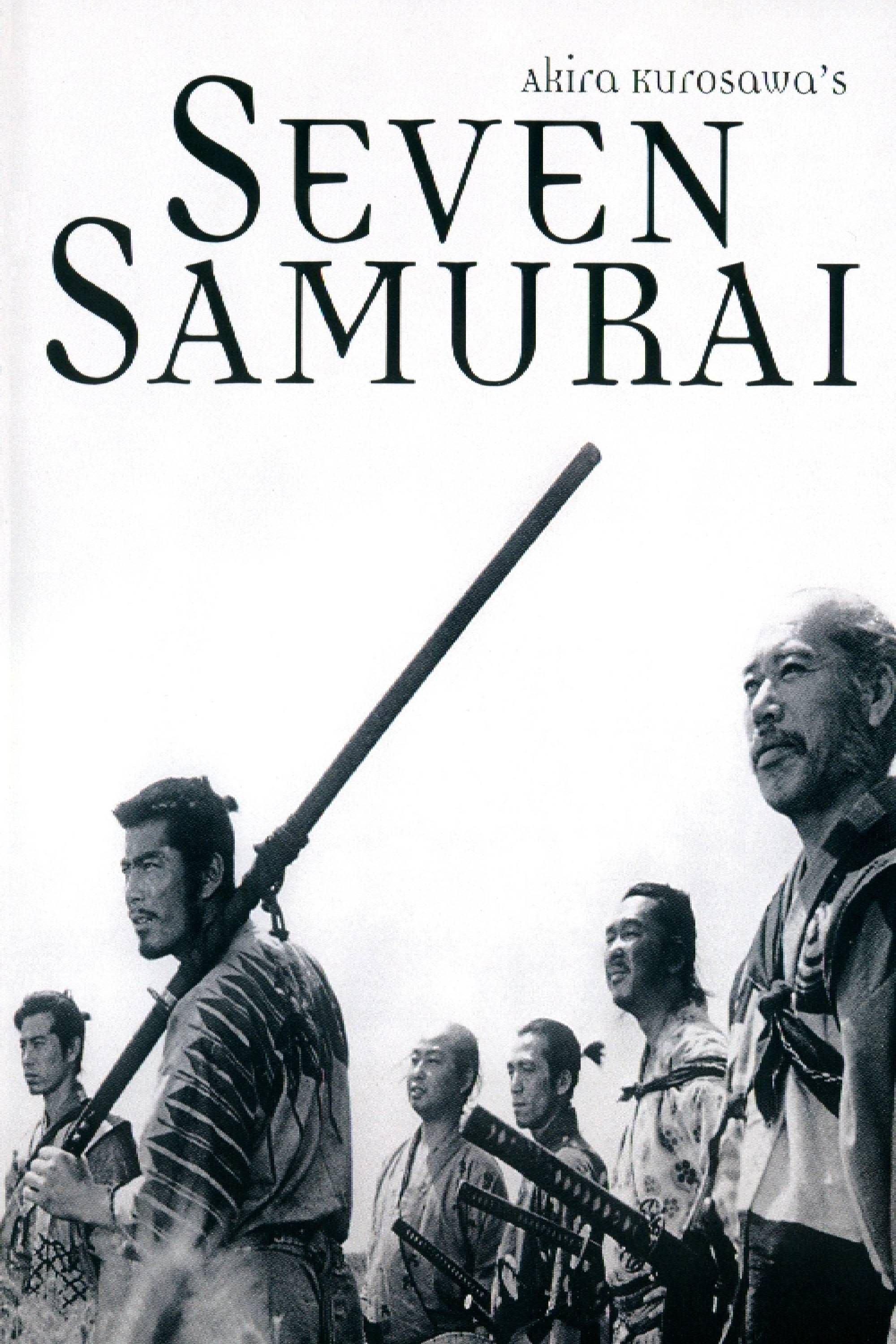
Seven Samurai
Release Date April 26, 1954
Runtime 207 Minutes
Director Akira Kurosawa









 English (US) ·
English (US) ·